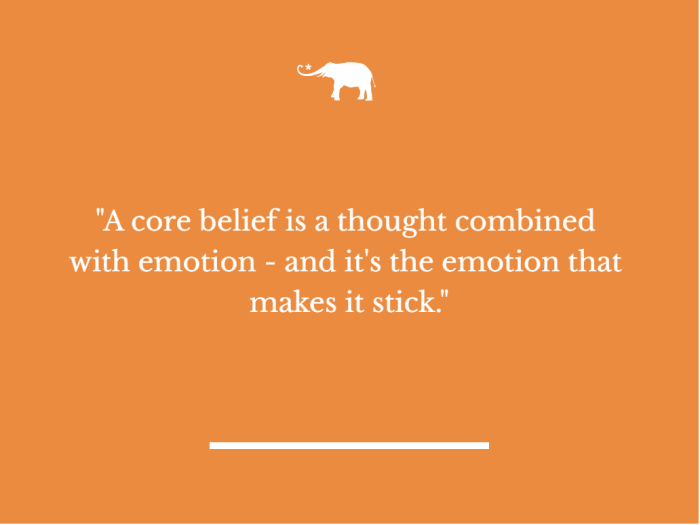I’ve been thinking about self-love a lot lately. Depression offers a unique influence on how I see myself, compounding an already shaky self-image. Body dysmorphia has plagued me all of my life, and even on my best days I still don’t love what I see in the mirror. On my worst, I make derisive sounds and disdainful faces at my reflection. And I know it’s not fair. So it got me thinking about what the path to self-love and acceptance might look like for me.
To preface this exploration, I will say that I’ve done a lot of self-work already. Twenty-plus years of therapy, six months of breathwork, even a few Reiki sessions. I know what doing the work looks and feels like, and I’m proud of the work I’ve done, but I still have a lot more to do – especially as it pertains to how I see myself.
Here is what I’ve learned so far:
Self-love goes far deeper than just confidence; deeper than body positivity or neutrality. Self-love gets into the gritty, raw, and sometimes dark territory of examining the harmful messages we internalized and molded into “truths” that govern our self-perception. It can be painful to go back through our memories to identify the messages – and the messengers – and confront them. It can be difficult to dissect those messages, to stare at the words that caused us pain. And it can be frustrating to challenge the truths we allowed ourselves to believe; to rephrase, reframe, and reform them into affirmations.
It’s hard because, for most of us, it’s easier to believe the negative, harmful, and outright damaging words than it is to believe those that empower us to see ourselves as even remotely worthy of love – from others or from ourselves.
Do you ever wonder why?
It’s a question that has plagued me for a while, so I went in search of some answers. What I found was that there are endless ways to speculate the “why” of it, so I’m going to share the few that resonate most with me.
- Attachment – when we hear a certain thing from some we love and whose opinion we value, we internalize, accept, and believe that message. It becomes about our worthiness of love. At the same time, we might take words like “you could really stand to lose a few pounds” as an indication that this person, whom you value, doesn’t love you the way you are. You interpret that as If I want this person to love me, I need to do what they say. I need to lose weight/be pretty/be funny/be smart. If I’m not those things, they won’t love me. And if they don’t or can’t love you, how can you love yourself? Your value is attached to their opinion of you.
- Safety – Clinging to negative beliefs about ourselves served a purpose for a while, keeping us safe from even more aversive things such as change, the unknown, vulnerability, rejection, or fear of going against the grain. If we continue to believe that we’re not smart, not worthy, or simply not good enough in any way, we won’t have to risk rejection by trying proving it isn’t true.
- Belonging – If we’re told we’re fat, ugly, or talentless, rejecting those messages means we risk losing our sense of belonging – even if those with whom we “belong” habitually put and keep us down. Rising above those beliefs means we could end up alone in our new-found self-confidence – or, heaven forbid, unconditional self-love.
- It’s just easier – Let’s be honest. It takes a lot more energy to change the beliefs you have about yourself than it does to just accept them. Why put effort into fighting to feel good when you just sit back and stay stuck in the relative comfort of your self-loathing? (Note: I am not being facetious; this is a thought I’ve had many times)
This list isn’t by any means exhaustive. In fact, I just recently saw a quote about core beliefs and how they’re tied to emotion, and it’s that emotion that makes them stick – wrong or right, harmful or helpful. If I believe I’m not worthy (which I do most of the time), I feel shame, guilt, and sadness. These emotions form a bond between my consciousness and those core beliefs, and I get attached to believing I’m not worthy of anything good (including love).
Knowing our core beliefs, and knowing the source of them is only half the battle. Next comes the hard part – confronting them. Looking them in the eye, offering compassion for how they were formed; how and why they cling to such a dark existence; and allowing them to feel their pain. It sounds simple, and in some ways it is. But it’s far from easy.
Doing “parts” work in therapy (also known as Internal Family Systems, or IFS) has taught me that opening myself – my Self Energy – to those parts that believe such awful things about who I am and how I look is an effective way to create space for dialogue, for understanding between me and those parts. Once everybody feels safe to share, the layers of shame, of confusion, of guilt, sadness, and fear start to fall away. There’s release. And in that release is freedom to form a new narrative. A new normal, and new set of Core Beliefs.
Was it easy? Not even a little. Was it painful? You bet. Did I resist it? Oh, if only you knew. Resistance is something my system does very well. Especially if I’m uncomfortable. So you can imagine the tension this work created.
I have a lot more work to do; a lot more exploration and discovery. I have become complacent again in my old set of beliefs, settling into that dark and cozy space where I can stay safe. No risk, no vulnerability, no venturing into the unknown.
This existence, however, is lonely. And, to be honest, exhausting. I don’t like how it feels to be constantly holding myself back, keeping myself small, and squashing my dreams because I refuse to allow myself to believe I’m worthy of reaching for and attaining them. I actually do want to live out loud.
And that meant it’s time to be brave. Time to cultivate that which we all deserve – consistent, unconditional self-love.












Read 0 comments and reply